- Книги
- 26-02-2023, 02:55
- 155
- 0
- voska89
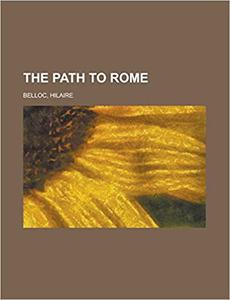
Hilaire Belloc, "The Path to Rome"
English | ISBN: 1236732499 | 2013 | 94 pages | EPUB | 1157 KB
Полная новость
- Книги
- 26-02-2023, 02:53
- 130
- 0
- voska89
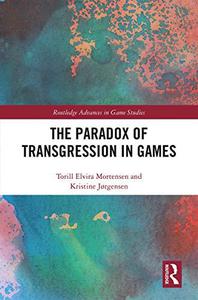
The Paradox of Transgression in Games By Torill Elvira Mortensen, Kristine Jørgensen
2020 | 222 Pages | ISBN: 0367418398 | PDF | 6 MB
The Paradox of Transgression in Games looks at transgressive games as an aesthetic experience, tackling how players respond to game content that shocks, disturbs, and distresses, and how contemporary video games can evoke intense emotional reactions. The book delves into the commercial success of many controversial videogames: although such games may appear shocking for the observing bystander, playing them is experienced as deeply rewarding for the player. Drawing on qualitative player studies and approaches from media aesthetics theory, the book challenges the perception of games as innocent entertainment, and examines the range of emotional, moral, and intellectual experiences of players. As they explore what players consider transgressive, the authors ask whether there is something about the gameplay situation that works to mitigate the sense of transgression, stressing gameplay as an aesthetic experience. Anchoring the aesthetic game experience both in play studies as well as in aesthetic theory, this book will be an essential resource for scholars and students of game studies, aesthetics, media studies, philosophy of art, and emotions.
Полная новость
- Книги
- 26-02-2023, 02:52
- 141
- 0
- voska89
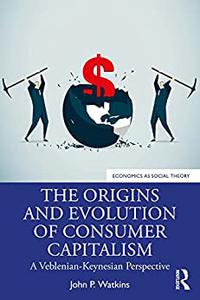
The Origins and Evolution of Consumer Capitalism: A Veblenian-Keynesian Perspective
English | 2023 | ISBN: 1138335460 | 241 Pages | PDF (True) | 3.2 MB
Consumer capitalism arose with the second industrial revolution, the application of continuous-mass production to consumer goods during the late nineteenth and early twentieth centuries. This book adopts a Veblenian, Keynesian viewpoint, presenting an evolutionary view of consumption combined with the need to increase demand to match increases in production. The book traces the history of consumer capitalism, examining the paradox posed by applying continuous-mass production to produce armaments for dynastic ambitions versus consumer goods for the masses, manifesting itself in the world wars of the twentieth century. Multiple paradoxes at the heart of the story address booms leading to busts, over-producing countries in Asia relying on over-consuming countries in the West, and the expansion of demand depending on increasingly inventive ways of liquefying assets, in light of stagnant incomes. The book persuasively argues that these paradoxes result from capitalism's incessant drive to accumulate capital, fostering conflict, crises, and depression. The latest paradox results from the impact of continuous-mass production on the environment, manifesting itself as the Darwinian dilemma. The dilemma stems from human beings largely winning the struggle for existence and, in the process, possibly making the earth uninhabitable, at least for humans.
Полная новость
- Книги
- 26-02-2023, 02:51
- 143
- 0
- voska89
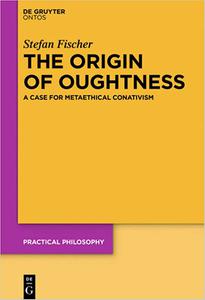
Stefan Fischer, "The Origin of Oughtness "
English | ISBN: 3110600722 | 2018 | 300 pages | EPUB, PDF | 4 MB + 1494 KB
How come we ought to do things? Current metanormative debates often suffer from the fact that authors implicitly use adequacy conditions not shared by their opponents. This leads to an unsatisfying dialectical gridlock (Chang): One author accuses her opponents of not being able to account for stuff she judges essential, but the opponents do not think this to be a major flaw. In an attempt to meet the problem of gridlock head-on, the current investigation approaches oughtness differently. I start with the introduction of a grounding framework for thinking about oughtness that allows a lucid presentation of the views on the market. It soon becomes clear that one necessary part of any plausible assessment of accounts of oughtness is a discussion of their adequacy conditions. I continue with a detailed evaluation of four different accounts, as presented by Halbig (2007), Schroeder (2007), Stemmer (2006), and Scanlon (2014). My main result is that desire-based or Humean theories of oughtness are more plausible because desire-independent accounts fail to explain something crucial: the for-me character of oughtness. Based on the insights gathered thus far, I then develop a new Humean theory - metaethical conativism - and defend it against some historically influential objections.
Полная новость
- Книги
- 26-02-2023, 02:50
- 154
- 0
- voska89
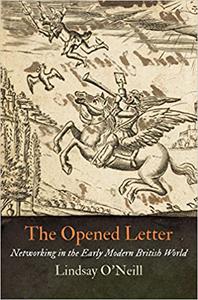
Lindsay O'Neill, "The Opened Letter: Networking in the Early Modern British World "
English | ISBN: 0812246489 | 2014 | 272 pages | PDF | 25 MB
By the early eighteenth century, the rapid expansion of the British empire had created a technological problem: communication and networking became increasingly vital yet harder to maintain. As colonial possessions and populations grew and more individuals moved around the globe, Britons both at home and abroad required a constant and reliable means of communication to conduct business, plumb intellectual concerns, discuss family matters, run distant estates, and exchange news. As face-to-face communication became more intermittent, men and women across the early modern British world relied on letters.
Полная новость
- Книги
- 26-02-2023, 02:49
- 140
- 0
- voska89
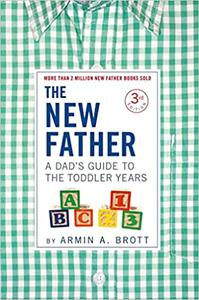
Armin A. Brott, "The New Father: A Dad's Guide to The Toddler Years, 12-36 Months"
English | 2020 | ISBN: 0789213249, 0789213230 | 336 pages | EPUB | 3.2 MB
The essential guide for fathers of one- and two-year-olds, completely revised and updated
Полная новость
- Книги
- 26-02-2023, 02:48
- 152
- 0
- voska89
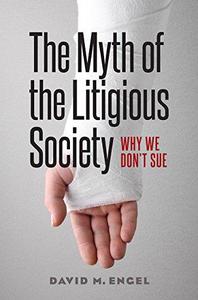
The Myth of the Litigious Society: Why We Don't Sue By David M. Engel
2016 | 248 Pages | ISBN: 022630504X | PDF | 1 MB
Why do Americans seem to sue at the slightest provocation? The answer may surprise you: we don't! For every "Whiplash Charlie" who sees a car accident as a chance to make millions, for every McDonald's customer to pursue a claim over a too-hot cup of coffee, many more Americans suffer injuries but make no claims against those responsible or their insurance companies. The question is not why Americans sue but why we don't sue more often, and the answer can be found in how we think about injury and personal responsibility. With this book, David M. Engel demolishes the myth that America is a litigious society. The sobering reality is that the vast majority of injury victims-more than nine out of ten-rely on their own resources, family and friends, and government programs to cover their losses. When real people experience serious injuries, they don't respond as rational actors. Trauma and pain disrupt their thoughts, and potential claims are discouraged by negative stereotypes that pervade American television and popular culture. (Think Saul Goodman in Breaking Bad, who keeps a box of neck braces in his office to help clients exaggerate their injuries.) Cultural norms make preventable injuries appear inevitable-or the victim's fault. We're taught to accept setbacks stoically and not blame someone else. But this tendency to "lump it" doesn't just hurt the victims; it hurts us all. As politicians continue to push reforms that miss the real problem, we risk losing these claims as a way to quickly identify unsafe products and practices. Because injuries disproportionately fall on people with fewer resources, the existing framework creates a social underclass whose needs must be met by government programs all citizens shoulder while shielding those who cause the harm. It's time for America to have a more responsible, blame-free discussion about injuries and the law. With The Myth of the Litigious Society, Engel takes readers clearly and powerfully through what we really know about injury victims and concludes with recommendations for how we might improve the situation.
Полная новость
- Книги
- 26-02-2023, 02:47
- 145
- 0
- voska89
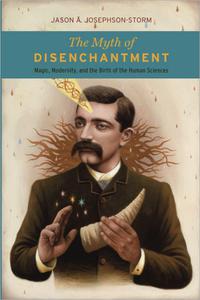
The Myth of Disenchantment: Magic, Modernity, and the Birth of the Human Sciences by Jason A. Josephson-Storm
English | May 18, 2017 | ISBN: 022640322X, 022640336X | True EPUB | 400 pages | 12 MB
A great many theorists have argued that the defining feature of modernity is that people no longer believe in spirits, myths, or magic. Jason Ā. Josephson-Storm argues that as broad cultural history goes, this narrative is wrong, as attempts to suppress magic have failed more often than they have succeeded. Even the human sciences have been more enchanted than is commonly supposed. But that raises the question: How did a magical, spiritualist, mesmerized Europe ever convince itself that it was disenchanted?
Полная новость
- Книги
- 26-02-2023, 02:46
- 132
- 0
- voska89
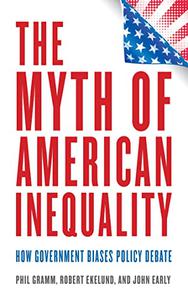
The Myth of American Inequality: How Government Biases Policy Debate by Phil Gramm, Robert Ekelund, John Early
2022 | ISBN: 1538167387 | English | 264 pages | PDF | 4.7 MB
A Wall Street Journal Best Book of 2022: Politics
Полная новость
- Книги
- 26-02-2023, 02:45
- 130
- 0
- voska89
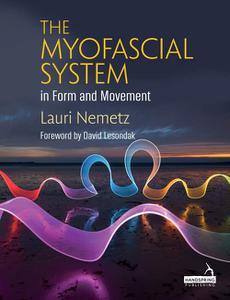
The Myofascial System in Form and Movement
by Nemetz, Lauri;Lesondak, David;
English | 2023 | ISBN: 1912085798 | 240 pages | True PDF EPUB | 142.39 MB
Полная новость